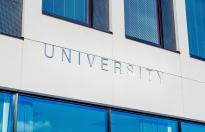(Sacramento) – As a result of Governor Newsom’s signature today on AB 697, California will soon begin requiring colleges to disclose preferential admissions practices to the state. Under the legislation by Assemblymember Phil Ting (D-San Francisco), the data must detail whether any of the school’s admitted students have a relationship to a donor or alumni, and how many of these students did not otherwise meet the criteria for admission.
“We must strive for a level playing field in the college admissions process, so there can be equal opportunity for all,” said Ting. “We should know how prevalent donor and alumni-based preferential treatment is in California, so we can compare that to the amount of state-funded benefits, like CalGrants, flowing toward the school.”
 In March, a handful of Assembly Democrats unveiled a package of six college admissions reform proposals in response to the scandal dubbed “Operation Varsity Blues.” That investigation found that well-connected families used a side door to get their typically unqualified children admitted into elite schools through illegal bribes, donations and/or falsified SAT scores. Additionally, the scandal shed light on the many legal ways that wealth and relationships skew the college admissions process. AB 697 was California’s first reform measure to reach the Governor’s desk.
In March, a handful of Assembly Democrats unveiled a package of six college admissions reform proposals in response to the scandal dubbed “Operation Varsity Blues.” That investigation found that well-connected families used a side door to get their typically unqualified children admitted into elite schools through illegal bribes, donations and/or falsified SAT scores. Additionally, the scandal shed light on the many legal ways that wealth and relationships skew the college admissions process. AB 697 was California’s first reform measure to reach the Governor’s desk.
Two other bills from that package were also signed by the Governor today:
- AB 1383 - strengthens checks and balances on special admissions by exception (McCarty)
- AB 136 - prohibits fraudulent tax write-offs for individuals charged in the scandal (Quirk-Silva)
Ting’s AB 697 will take effect January 1, 2020, with data from the 2019-20 school year required to be released by June 30, 2020.
# # # # #